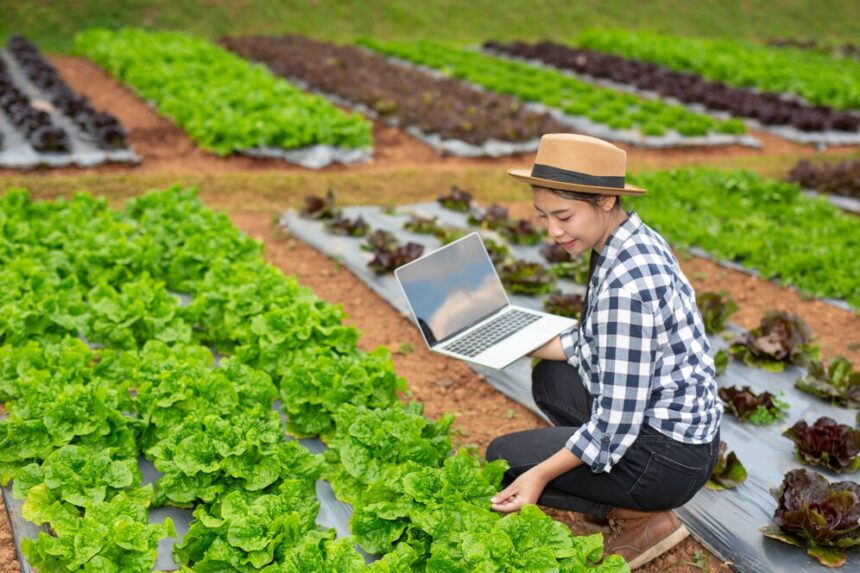In recent years, South Korea has become a global leader in adopting advanced technologies for agricultural practices. One of the most notable developments is the use of artificial intelligence (AI) in precision fertilization. This approach leverages AI-powered systems to optimize the use of fertilizers, leading to more sustainable farming practices, reduced environmental impact, and improved crop yields. Here’s how South Korean farmers are using AI to revolutionize fertilization.
The Traditional Fertilization Problem
Traditionally, farmers have applied fertilizers based on broad estimates, often using generalized guidelines that may not account for specific soil conditions or crop needs. This can lead to over-fertilization, which wastes resources, pollutes the environment, and can even harm crops. Under-fertilization, on the other hand, can result in lower yields and poor-quality produce.
Enter AI-Powered Precision Fertilization
AI in agriculture works by using large datasets collected from sensors, drones, satellite imagery, and other tools. These datasets provide detailed insights into soil health, moisture levels, crop conditions, and more. AI algorithms analyze this data to make precise recommendations about the amount and timing of fertilizer applications, ensuring that crops receive the optimal amount of nutrients at the right time.
In South Korea, AI systems monitor soil and plant conditions in real-time. Sensors embedded in the soil track parameters such as nutrient content, pH levels, and moisture, while drones and satellites provide aerial images to assess crop health. By processing this data, AI can calculate the ideal fertilizer mix, adjusting it for local conditions, crop variety, and growth stage.
Benefits of AI-Powered Fertilization
- Increased Efficiency: AI helps farmers apply the precise amount of fertilizer needed, reducing waste and lowering costs. With more efficient use of fertilizers, South Korean farmers can save money and minimize the environmental impact of overuse.
- Environmental Sustainability: By reducing the over-application of fertilizers, AI-powered precision fertilization minimizes harmful runoff into nearby water sources, reducing water pollution. This leads to a more sustainable and eco-friendly farming practice.
- Improved Crop Yields: By applying fertilizers only when and where they are needed, AI ensures that crops receive optimal nutrition. This leads to healthier plants and higher yields, ultimately boosting farmers’ productivity and profitability.
- Data-Driven Decision Making: AI empowers farmers with data-backed insights, allowing them to make more informed decisions about their farming practices. This reduces guesswork and reliance on traditional, less efficient methods.
AI and Smart Agriculture in South Korea
South Korea has long been a pioneer in the integration of technology into agriculture. AI for precision fertilization is just one example of how the country is pushing the boundaries of innovation in farming. The government has invested heavily in agricultural technology, and research institutions are working closely with farmers to develop and implement AI solutions tailored to local needs.
Companies like LG and Hyundai have developed smart farming equipment that utilizes AI to automate various aspects of farming, including fertilization. The government is also supporting the transition to AI-powered farming through subsidies, training programs, and initiatives aimed at improving digital literacy among farmers.
Challenges and Future Outlook
While the use of AI in precision fertilization has shown promising results, challenges remain. One of the biggest obstacles is the high initial cost of implementing AI systems, which may be prohibitive for small-scale farmers. Additionally, farmers need to be trained in how to use these new technologies effectively.
Despite these challenges, the future of AI-powered farming in South Korea looks bright. As technology becomes more affordable and accessible, it is expected that more farmers will adopt AI for precision fertilization. Furthermore, ongoing advancements in AI and machine learning will likely continue to enhance the accuracy and efficiency of these systems, paving the way for even more sustainable and productive farming practices.
South Korean farmers are leading the way in adopting AI for precision fertilization, setting an example for the global agricultural community. By optimizing fertilizer use, reducing waste, and improving crop yields, AI is helping South Korea’s farmers create a more sustainable and efficient agricultural system. As technology continues to evolve, the impact of AI in farming will only grow, bringing about a new era of precision agriculture that benefits farmers, consumers, and the environment.
Join 'Farmers Mag' WhatsApp Channel
Get the latest Farming news and tips delivered straight to your WhatsApp
CLICK HERE TO JOIN






